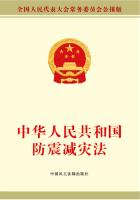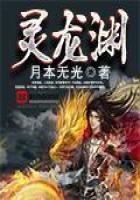King. Now, Hamlet, where's Polonius? Ham. At supper. King. At supper? Where? Ham. Not where he eats, but where he is eaten. A certain convocation of politic worms are e'en at him. Your worm is your only emperor for diet. We fat all creatures else to fat us, and we fat ourselves for maggots. Your fat king and your lean beggar is but variable service-two dishes, but to one table. That's the end. King. Alas, alas! Ham. A man may fish with the worm that hath eat of a king, and eat of the fish that hath fed of that worm. King. What dost thou mean by this? Ham. Nothing but to show you how a king may go a progress through the guts of a beggar. King. Where is Polonius? Ham. In heaven. Send thither to see. If your messenger find him not there, seek him i' th' other place yourself. But indeed, if you find him not within this month, you shall nose him as you go up the stair, into the lobby. King. Go seek him there. [To Attendants.] Ham. He will stay till you come. [Exeunt Attendants.] King. Hamlet, this deed, for thine especial safety,- Which we do tender as we dearly grieve For that which thou hast done,- must send thee hence With fiery quickness. Therefore prepare thyself. The bark is ready and the wind at help, Th' associates tend, and everything is bent For England. Ham. For England? King. Ay, Hamlet. Ham. Good. King. So is it, if thou knew'st our purposes. Ham. I see a cherub that sees them. But come, for England! Farewell, dear mother. King. Thy loving father, Hamlet. Ham. My mother! Father and mother is man and wife; man and wife is one flesh; and so, my mother. Come, for England! Exit. King. Follow him at foot; tempt him with speed aboard. Delay it not; I'll have him hence to-night. Away! for everything is seal'd and done That else leans on th' affair. Pray you make haste. Exeunt Rosencrantz and Guildenstern] And, England, if my love thou hold'st at aught,- As my great power thereof may give thee sense, Since yet thy cicatrice looks raw and red After the Danish sword, and thy free awe Pays homage to us,- thou mayst not coldly set Our sovereign process, which imports at full, By letters congruing to that effect, The present death of Hamlet. Do it, England; For like the hectic in my blood he rages, And thou must cure me. Till I know 'tis done, Howe'er my haps, my joys were ne'er begun. Exit.
<<THIS ELECTRONIC VERSION OF THE COMPLETE WORKS OF WILLIAM SHAKESPEARE IS COPYRIGHT 1990-1993 BY WORLD LIBRARY, INC., AND IS PROVIDED BY PROJECT GUTENBERG ETEXT OF CARNEGIE MELLON UNIVERSITY WITH PERMISSION.ELECTRONIC AND MACHINE READABLE COPIES MAY BE DISTRIBUTED SO LONG AS SUCH COPIES (1) ARE FOR YOUR OR OTHERS PERSONAL USE ONLY, AND (2) ARE NOT DISTRIBUTED OR USED COMMERCIALLY.PROHIBITED COMMERCIAL DISTRIBUTION INCLUDES BY ANY SERVICE THAT CHARGES FOR DOWNLOAD TIME OR FOR MEMBERSHIP.>>
SCENE IV. Near Elsinore.
Enter Fortinbras with his Army over the stage.
For. Go, Captain, from me greet the Danish king. Tell him that by his license Fortinbras Craves the conveyance of a promis'd march Over his kingdom. You know the rendezvous. If that his Majesty would aught with us, We shall express our duty in his eye; And let him know so. Capt. I will do't, my lord. For. Go softly on.Exeunt [all but the Captain].
Enter Hamlet, Rosencrantz, [Guildenstern,] and others.
Ham. Good sir, whose powers are these? Capt. They are of Norway, sir. Ham. How purpos'd, sir, I pray you? Capt. Against some part of Poland. Ham. Who commands them, sir? Capt. The nephew to old Norway, Fortinbras. Ham. Goes it against the main of Poland, sir, Or for some frontier? Capt. Truly to speak, and with no addition, We go to gain a little patch of ground That hath in it no profit but the name. To pay five ducats, five, I would not farm it; Nor will it yield to Norway or the Pole A ranker rate, should it be sold in fee. Ham. Why, then the Polack never will defend it. Capt. Yes, it is already garrison'd. Ham. Two thousand souls and twenty thousand ducats Will not debate the question of this straw. This is th' imposthume of much wealth and peace, That inward breaks, and shows no cause without Why the man dies.- I humbly thank you, sir. Capt. God b' wi' you, sir. [Exit.] Ros. Will't please you go, my lord? Ham. I'll be with you straight. Go a little before. [Exeunt all but Hamlet.] How all occasions do inform against me And spur my dull revenge! What is a man, If his chief good and market of his time Be but to sleep and feed? A beast, no more. Sure he that made us with such large discourse, Looking before and after, gave us not That capability and godlike reason To fust in us unus'd. Now, whether it be Bestial oblivion, or some craven scruple Of thinking too precisely on th' event,- A thought which, quarter'd, hath but one part wisdom And ever three parts coward,- I do not know Why yet I live to say 'This thing's to do,' Sith I have cause, and will, and strength, and means To do't. Examples gross as earth exhort me. Witness this army of such mass and charge, Led by a delicate and tender prince, Whose spirit, with divine ambition puff'd, Makes mouths at the invisible event, Exposing what is mortal and unsure To all that fortune, death, and danger dare, Even for an eggshell. Rightly to be great Is not to stir without great argument, But greatly to find quarrel in a straw When honour's at the stake. How stand I then, That have a father kill'd, a mother stain'd, Excitements of my reason and my blood, And let all sleep, while to my shame I see The imminent death of twenty thousand men That for a fantasy and trick of fame Go to their graves like beds, fight for a plot Whereon the numbers cannot try the cause, Which is not tomb enough and continent To hide the slain? O, from this time forth, My thoughts be bloody, or be nothing worth!Exit.















